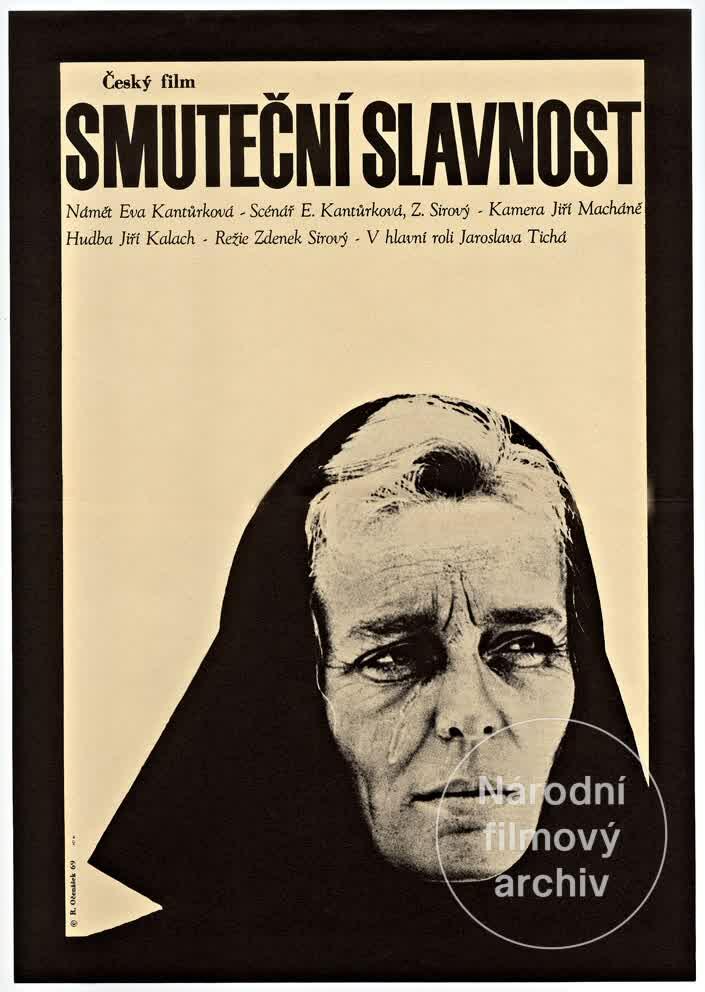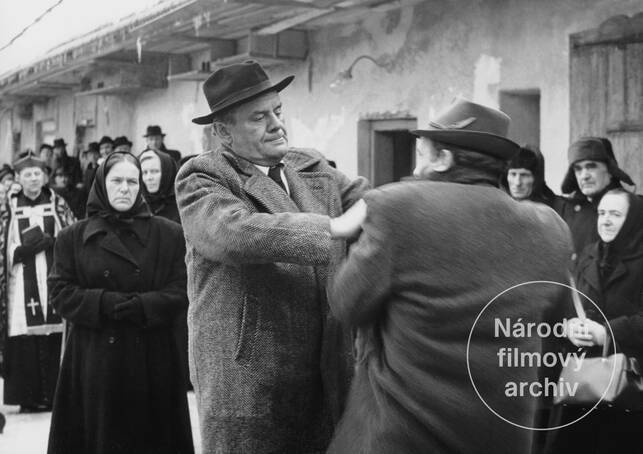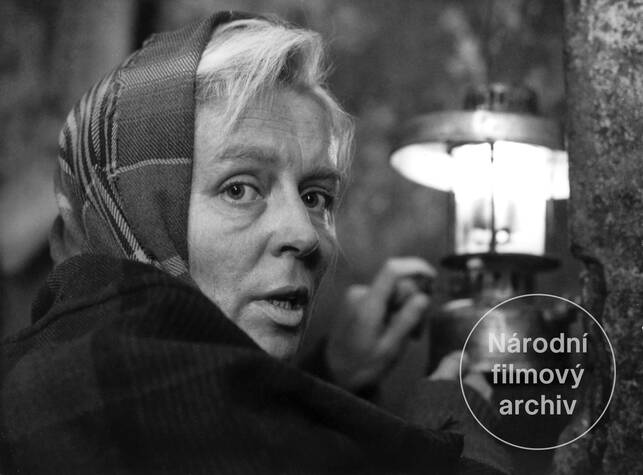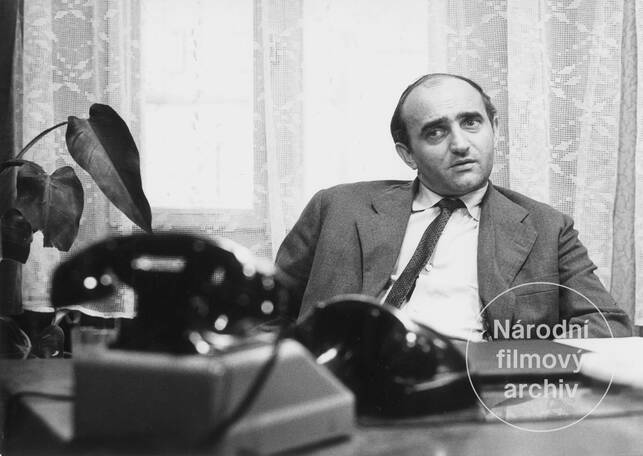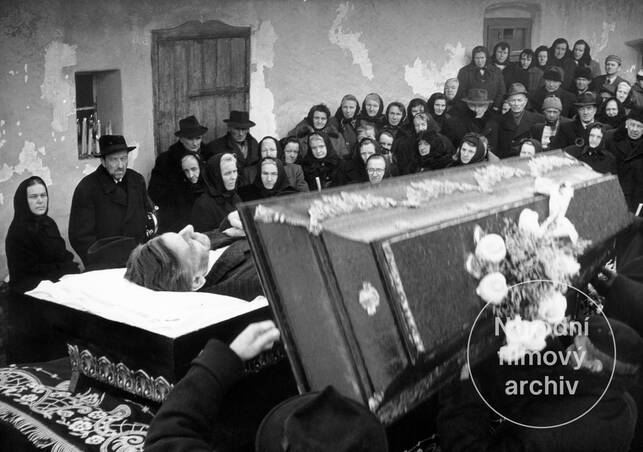Summary
This 1969 drama directed by Zdeněk Sirový is one of a number of films critical of the former regime that was only released after November 1989. Consequently, the first public screening of Smuteční slavnost (Funeral Ceremonies) took place on 6 November 1989 at the Charles University Faculty of Arts in Prague. Author Eva Kantůrková collaborated with the director on this adaptation of her 1967 novel. Syrový’s third feature is set in 1965, but traces back to the 1948 communist coup. In this poetic epic, Kantůrková and Sirový criticise not only the era of 1950s collectivisation, but also the supposedly more liberal climate of the 1960s. In 1951, farmer Chladil speaks up against collectivisation policies. As a result, he is forced to leave his farm and is driven out of his home village. Even after death Chladil is unable to return to Bezděšov, for local authorities are afraid that his burial at the family grave, and any ceremonies organised by Matylda, the wife of the deceased, might serve as a reminder of old injustices. The local priest is powerless to help Matylda, who is even forced to do battle with her husband’s old enemy Devera. The amenable and remorseful functionary Januš ultimately provides the necessary burial approval. In the end, the ceremonies serve as the population’s form of silent protest against the regime. But the old injustice cannot be undone… This hefty drama cleverly interweaves two timelines – one set in the 50s, and one in the present day of 1965. Matylda serves as the focal point of the story, highlighting the plight of her husband, unable to return home even after his death. Jaroslava Tichá offers a gripping performance as the unyielding Matylda, bolstering the sense of an old-fashioned epic drama. But Zdeněk Sirový avoids any sense of overt heroism, limiting his interpretation to a sober and cold telling of the painful on-screen events.
Read more

